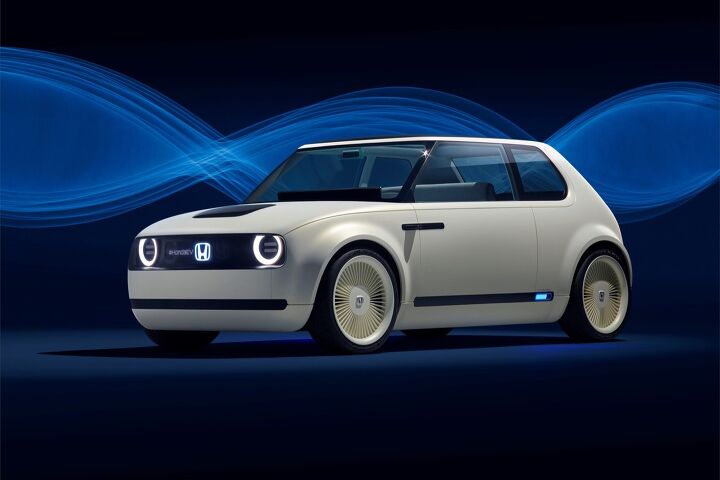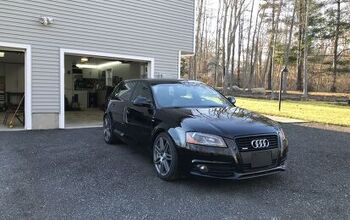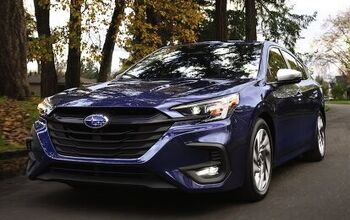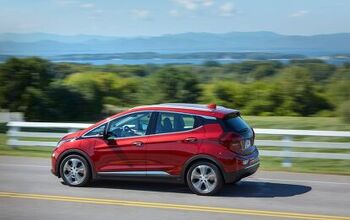Positives and Negatives: Honda Weighing Benefits of Solid-state Batteries

Tightening global emission regulations are pushing the world’s automakers to put all fuel-saving options on the table. Electric cars are an obvious answer, but range anxiety and consumer concerns about battery life continue to dog vehicles powered solely by electrons.
With a finite amount of space in their vehicles, manufacturers are constantly looking for efficiencies when laying out plans for EVs. According to a report from Reuters, Honda is considering developing solid-state batteries for use in their future EVs.
Solid-state batteries have an abundance of advantages over the lithium-ion units found in the majority of today’s electrified vehicles. Relying on a gel- or liquid-based electrolyte, lithium-ion batteries use that fluid as a pathway for electricity as the unit discharges. As with any technology relying on components that are in a state of flux, lithium-ion batteries will eventually weaken and lose performance over time.
Solid-state batteries, as suggested by the name, deploy a solid conductive material instead. This battery type is said to handle thermal loads better than its mundane brethren, while also holding an edge in energy density. Without getting into too much detail and putting everyone to sleep, these advantages will allow EVs that deploy solid-state batteries to potentially operate efficiently in a wider range of temperatures and pack more juice into a smaller battery footprint.
At present, solid-state batteries are eye-wateringly expensive, preventing manufacturers from using them in the current fleet of EVs. As OEMs are not exactly in the business of losing money, this budget-hoovering battery technology has traditionally remained solidly on the R&D back burner.
Now, with most manufacturers bumping up against the limitations of existing battery tech, solid-state batteries are getting a second look. Reuters reports that Honda is looking into sinking a few dollars in the technology, while BMW announced just earlier this week it’s teaming up with an American company called Solid Power. Toyota, which said on Monday that every vehicle it makes will have an electrified version by 2025 (plus ten new EVs by the early 2020s), is also hard at work attempting its own solid-state breakthrough.
Honda showed off several natty EV concepts at various auto shows around the world this year, most notably the retro-themed Urban EV in Germany and the cool Sports EV in Japan. If the House of Soichiro can figure out solid-state batteries over the next five years, you can bet it’ll find its way into production pretty quickly.
[Image: Honda]

Matthew buys, sells, fixes, & races cars. As a human index of auto & auction knowledge, he is fond of making money and offering loud opinions.
More by Matthew Guy
Latest Car Reviews
Read moreLatest Product Reviews
Read moreRecent Comments
- W Conrad I'm not afraid of them, but they aren't needed for everyone or everywhere. Long haul and highway driving sure, but in the city, nope.
- Jalop1991 In a manner similar to PHEV being the correct answer, I declare RPVs to be the correct answer here.We're doing it with certain aircraft; why not with cars on the ground, using hardware and tools like Telsa's "FSD" or GM's "SuperCruise" as the base?Take the local Uber driver out of the car, and put him in a professional centralized environment from where he drives me around. The system and the individual car can have awareness as well as gates, but he's responsible for the driving.Put the tech into my car, and let me buy it as needed. I need someone else to drive me home; hit the button and voila, I've hired a driver for the moment. I don't want to drive 11 hours to my vacation spot; hire the remote pilot for that. When I get there, I have my car and he's still at his normal location, piloting cars for other people.The system would allow for driver rest period, like what's required for truckers, so I might end up with multiple people driving me to the coast. I don't care. And they don't have to be physically with me, therefore they can be way cheaper.Charge taxi-type per-mile rates. For long drives, offer per-trip rates. Offer subscriptions, including miles/hours. Whatever.(And for grins, dress the remote pilots all as Johnnie.)Start this out with big rigs. Take the trucker away from the long haul driving, and let him be there for emergencies and the short haul parts of the trip.And in a manner similar to PHEVs being discredited, I fully expect to be razzed for this brilliant idea (not unlike how Alan Kay wasn't recognized until many many years later for his Dynabook vision).
- B-BodyBuick84 Not afraid of AV's as I highly doubt they will ever be %100 viable for our roads. Stop-and-go downtown city or rush hour highway traffic? I can see that, but otherwise there's simply too many variables. Bad weather conditions, faded road lines or markings, reflective surfaces with glare, etc. There's also the issue of cultural norms. About a decade ago there was actually an online test called 'The Morality Machine' one could do online where you were in control of an AV and choose what action to take when a crash was inevitable. I think something like 2.5 million people across the world participated? For example, do you hit and most likely kill the elderly couple strolling across the crosswalk or crash the vehicle into a cement barrier and almost certainly cause the death of the vehicle occupants? What if it's a parent and child? In N. America 98% of people choose to hit the elderly couple and save themselves while in Asia, the exact opposite happened where 98% choose to hit the parent and child. Why? Cultural differences. Asia puts a lot of emphasis on respecting their elderly while N. America has a culture of 'save/ protect the children'. Are these AV's going to respect that culture? Is a VW Jetta or Buick Envision AV going to have different programming depending on whether it's sold in Canada or Taiwan? how's that going to effect legislation and legal battles when a crash inevitibly does happen? These are the true barriers to mass AV adoption, and in the 10 years since that test came out, there has been zero answers or progress on this matter. So no, I'm not afraid of AV's simply because with the exception of a few specific situations, most avenues are going to prove to be a dead-end for automakers.
- Mike Bradley Autonomous cars were developed in Silicon Valley. For new products there, the standard business plan is to put a barely-functioning product on the market right away and wait for the early-adopter customers to find the flaws. That's exactly what's happened. Detroit's plan is pretty much the opposite, but Detroit isn't developing this product. That's why dealers, for instance, haven't been trained in the cars.
- Dartman https://apnews.com/article/artificial-intelligence-fighter-jets-air-force-6a1100c96a73ca9b7f41cbd6a2753fdaAutonomous/Ai is here now. The question is implementation and acceptance.


































Comments
Join the conversation
Everything has a trade off. In the computer world SSDs are fast and have no moving parts, but they wear out with heavy use. That's why they have extra capacity and trim software to replace capacity as it fails. We're just talking pushing electrons here so I'd guess a solid state battery may have this issue as well.
Wish Honda would build that concept car!! It reminds me of my beloved Honda 600 sedans(I owned nine of them at one time). even in an electric only model it would be something I would consider for a second car for local jaunts.